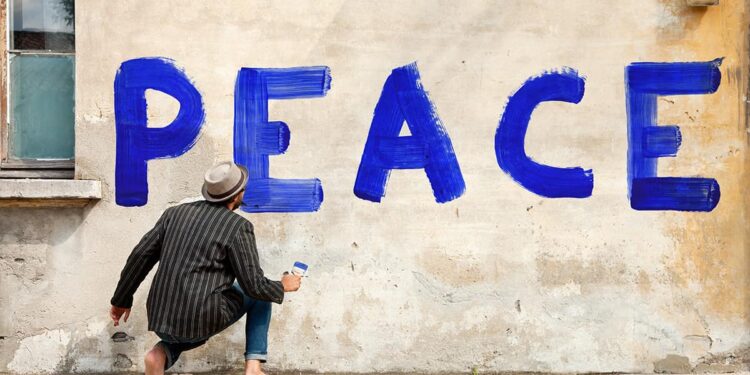#9 | SLOVENIA🇸🇮
A legend says that when God distributed the land to all the nations, Slovenians were overlooked because there were so few of them (they are still just 2.1 million). To apologize, he gave them a little piece of paradise he saved for himself. Slovenia’s territory—half of which is covered by forests—boasts one of the greatest levels of biodiversity on the continent: with only one-hour drive from the capital Ljubljana, you can either swim in the Adriatic Sea or climb the Julian Alps. It is the only country from Central Europe to place in the top 10, making it the most peaceful nation in the CEE region.
Along with Slovenia, the Czech Republic, Hungary and Croatia too make it into the top 20, and Bulgaria, Slovakia and Latvia into the top 30. Of the 36 ranked countries in Europe, 13 had improvements in peacefulness and 23 saw deteriorations. The only European countries in the bottom half of the index are Cyprus (at number 88), Türkiye (139) and, perhaps surprisingly to some, France (86).
View Slovenia GDP and Economic Data
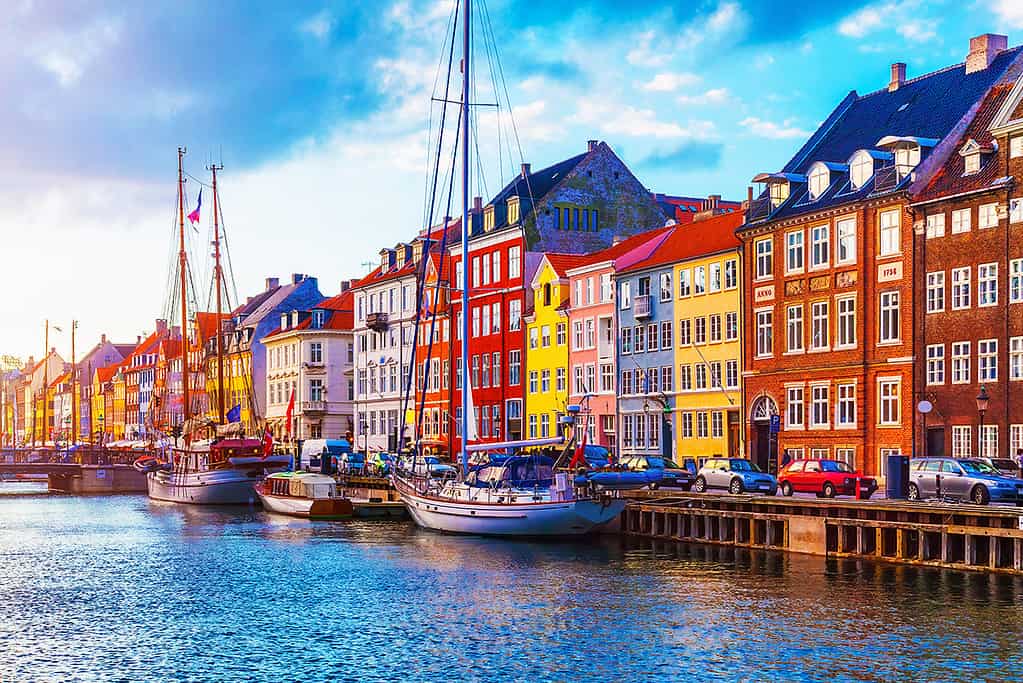
#8 | DENMARK🇩🇰
Sometimes gaining one or two spots and sometimes losing them, since 2008 Denmark never dropped below the fifth place in the Global Peace Index—that is until this year. Now ranked 8th, Denmark’s drop is more a result of other countries’ improvements than a significant decline in its own score, which has decreased by only 0.037% from last year.
Such relatively minor changes in the ranking only tell us that the kingdom is doing well. A safe country to travel and live in, Denmark is characterized by a high degree of political stability, freedom of the press and respect for human rights. It also boasts a high level of income equality and is frequently ranked as one of the happiest nations in the world.
To safeguard all that happiness and those excellent standards of living, this nation of less than 6 million spends a lot. In 2018, to counter the threat of Russia’s increasing military activity in eastern and northern Europe, Denmark reached a landmark cross-party political deal to increase its defense budget by 20%, on course to match its Nordic neighbors Sweden’s and Norway’s expenditure levels and reach the NATO membership target of 2% of national GDP in military spending. As a result, Denmark’s overall standing in the Peace Index is weighed down by its performance in the militarization domain, where it ranks 24th in the world. Things are likely to stay that way: in 2023, Denmark announced plans to invest the equivalent of $21 billion in defense over the next 10 years, a figure that was increased by an additional $5.1 billion in 2024.
View Denmark GDP and Economic Data
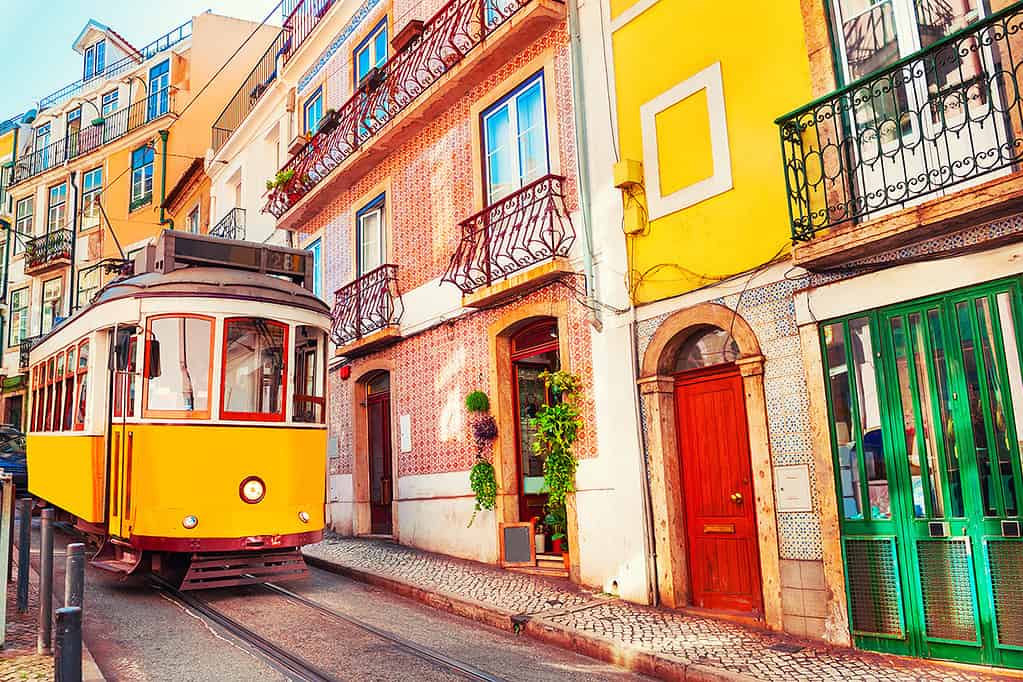
#7 | PORTUGAL🇵🇹
Portugal marches to the beat of its own drum when it comes to peace and safety. Over the past few years, this nation of about 10 million people has emerged as one of the biggest climbers of the Global Peace Index, moving from the 18th spot it held in 2014 into the top 10.
Ranking above the industrialized nations’ average in terms of housing, work-life balance, personal security and environmental quality, Portugal is also considered one of the top expat destinations due to its overall quality of life. Even better, there is no need to break the bank to enjoy the Portuguese way of living: the republic remains one of the most affordable destinations on the continent.
View Portugal GDP and Economic Data
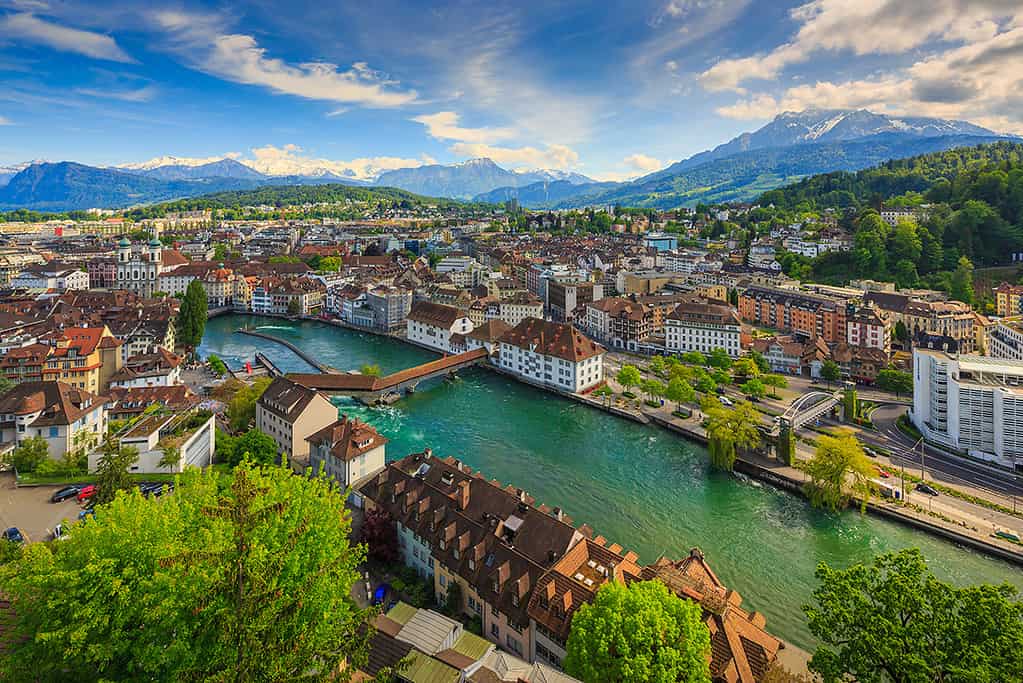
#6 | SWITZERLAND🇨🇭
Switzerland is exactly as one would expect: a place with an exceptionally high degree of safety in society, superior political stability, and close to inexistent international conflict. However, its surprising degree of militarization (total active and reserve army personnel number approximately 147,000 out of a population of about 8.9 million) keeps this nation from rising into the top 5. Switzerland—along with other well-ranking peaceful nations such as Canada, Singapore, Norway and the Netherlands—is also among the world’s top weapons exporters per capita.
Still, by most measures, Switzerland remains a prosperous country where linguistic and religious diversity is embraced. In ninth place in the United Nation’s Happiness Report, it also ranks above the average among OECD nations when it comes to subjective well-being, income, health and education and environmental quality.
View Switzerland GDP and Economic Data
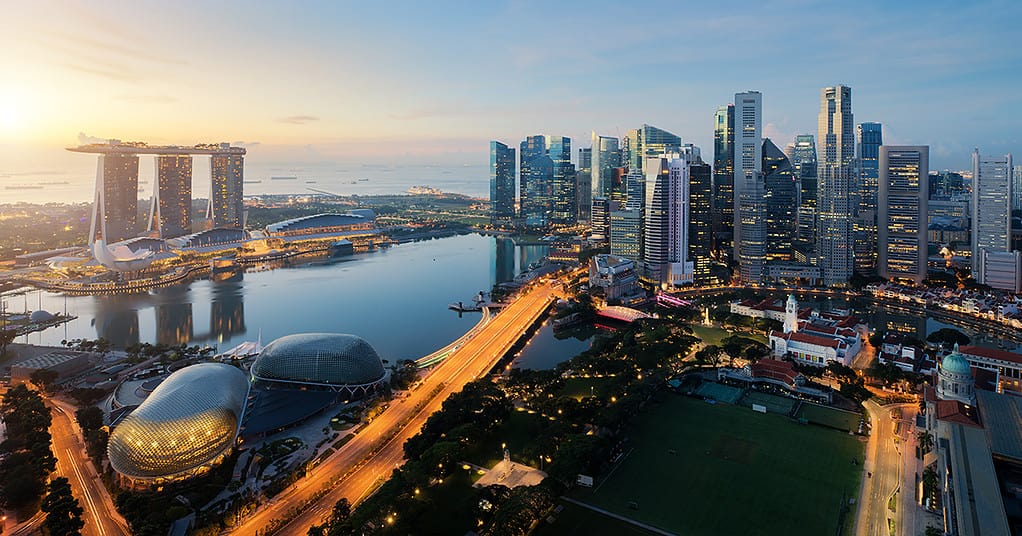
#5 | SINGAPORE🇦🇹
While the Global Peace Index report shows an increasingly violent world, Singapore has become more peaceful. Way more peaceful: when the ranking was first launched in 2008 Singapore occupied the 22nd spot. What prompted this remarkable jump? The IEP points out that the largest improvements in the ranking are usually broadly based while large deteriorations in peace are usually driven by just a few indicators.
So, while Singapore scored highly in societal safety and security and low levels of ongoing domestic and international conflict, holding it back from the highest tier of the ranking—like Switzerland—is its militarization level. Why does Singapore need so many people in its police and military forces and why is its arms expenditure so high? The city-state depends on seaborne trade for its prosperity, so having the naval resources to ensure the smooth passage of vessels through the Strait of Malacca, the narrow stretch of water that serves as a gateway between the Indian and Pacific Oceans, is crucial.
View Singapore GDP and Economic Data
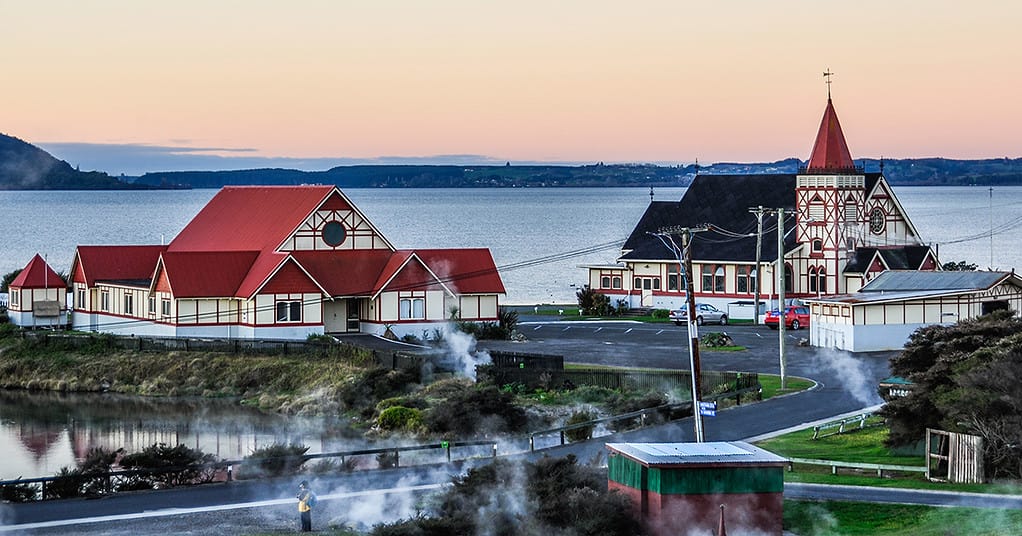
#4 | NEW ZEALAND🇳🇿
After holding on to the number two spot in the index since 2017, New Zealand slipped two spots to number four in last year’s edition of the Global Peace Index, and that’s where we find it this year too. Scoring almost perfect marks in the domains of societal safety and domestic and international conflict, this peaceful country is widely considered a wonderful place to live. Still, due to an increase in weapons imports and exports and upgrades on armed personnel carriers, New Zealand’s score in the militarization domain fell by 6% in last year’s edition of the index.
At around the same size as the United Kingdom but with a population of roughly 5.2 million people, New Zealand ranks above the average among OECD members in education, healthcare, jobs and earnings. All this, however, comes also at a cost: the shortage of affordable housing is increasingly making it difficult for people with low incomes to buy homes, with the gap between rich and poor considered the top economic issue facing New Zealand by 20% of its citizens.
View New Zealand GDP and Economic Data
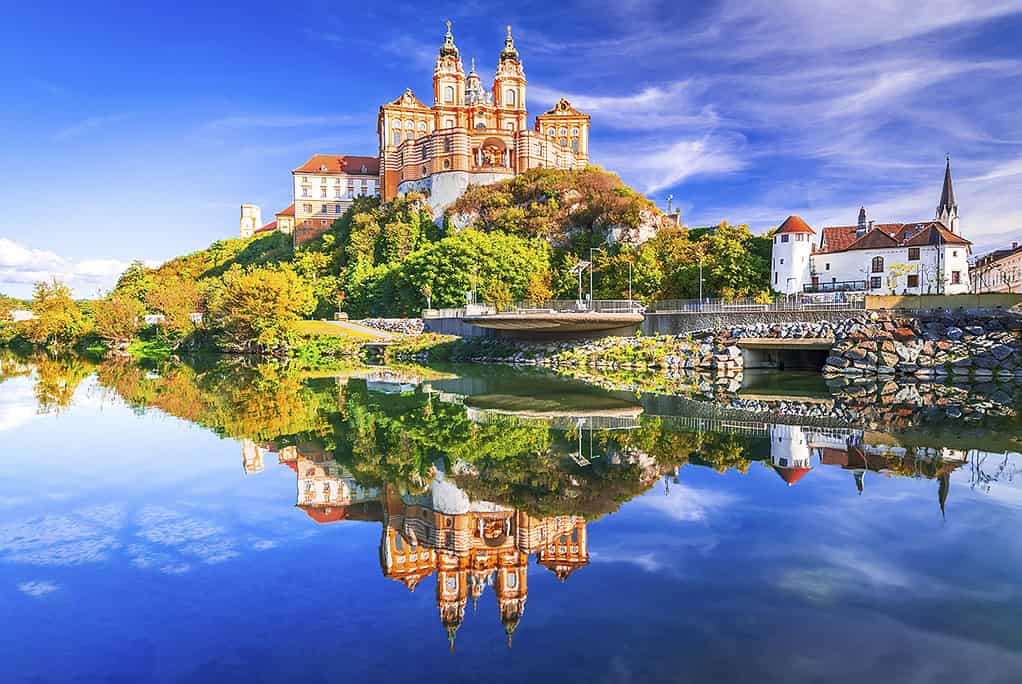
#3 | AUSTRIA🇦🇹
Since the end of the Cold War, this small landlocked country of about 9 million moved from its peripheral position at the borderline between East and West closer to the center of a united Europe. As a young member of the EU and outside of NATO, Austria prided itself on trying to get along with rival political blocs and embracing new forms of cooperation with its neighbors.
However, while Austria performs well in many measures of wellbeing such as income, jobs and housing, social tensions have been growing in recent years fueled especially by anti-migrant campaigns of the popular right-wing Freedom Party (FPÖ). When in November 2020 an ISIS sympathizer shot and killed 4 people and injured 23 others in the city center of Vienna, the government responded by unveiling broad anti-terror measures that included the ability to keep convicted individuals behind bars for life and facilitate electronic surveillance for those who are released. As a consequence, Austria experienced one of the largest deteriorations in peacefulness in Europe owing to a worsening of the terrorism impact indicator. Additionally, amidst the COVID-19 pandemic, its capital has been the epicenter of significant protests against both lockdown measures and the government’s mandate to enforce compulsory vaccination for all citizens. Since then, the support for the FPÖ has only grown: today it is the country’s leading political party.
View Austria GDP and Economic Data
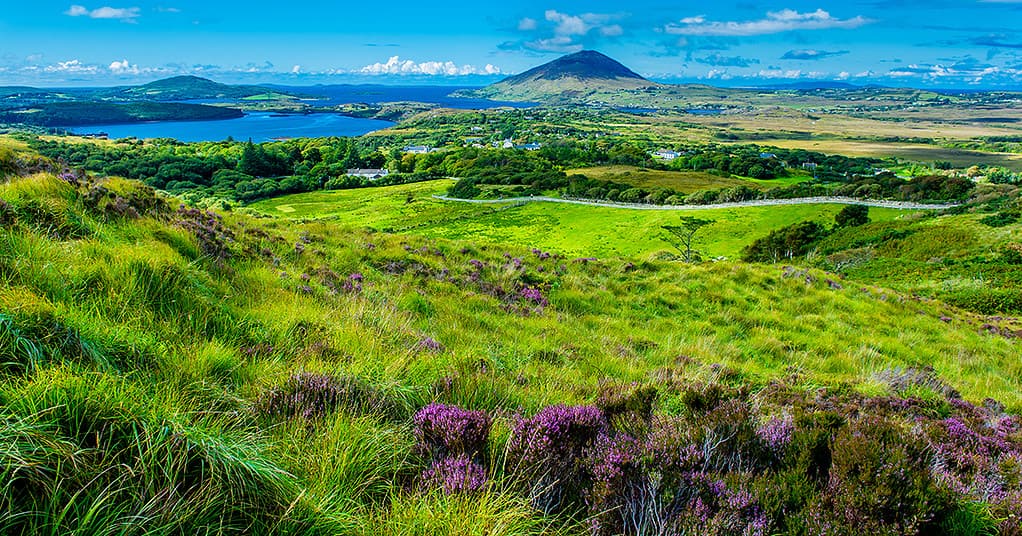
#2 | IRELAND🇮🇪
Ireland is one of the wealthiest, most developed and happiest nations in the world. It is also quite peaceful: in 2020, it managed to gain seven positions and land in the fourth spot of the Global Peace Report, the highest position it had ever attained in the ranking. In the following years, it occupied either the third or the second position, which is where we find it today.
Make no mistake: Ireland did not become a peace-loving nation overnight—centuries of tense relations with the United Kingdom can attest to that. Today though, due also to its longstanding independent status and neutral army (meaning that it is not a member of NATO), the Irish Republic is routinely ranked as one of the safest countries in the world. That does not mean it has become immune from political and social turmoil—during the pandemic, for example, Ireland saw its share of violent anti-lockdown demonstrations.
On page 84 of its study, the IEP reveals a striking piece of data: when it comes to the economic cost of violence, Ireland performs better than almost all countries in the world. Ranking 159th out of 163 nations, the toll is just 2.86% of the GDP compared to the global average, 13.5%. Only Malawi, Bangladesh, Indonesia and Madagascar perform slightly better in this domain.
View Ireland GDP and Economic Data
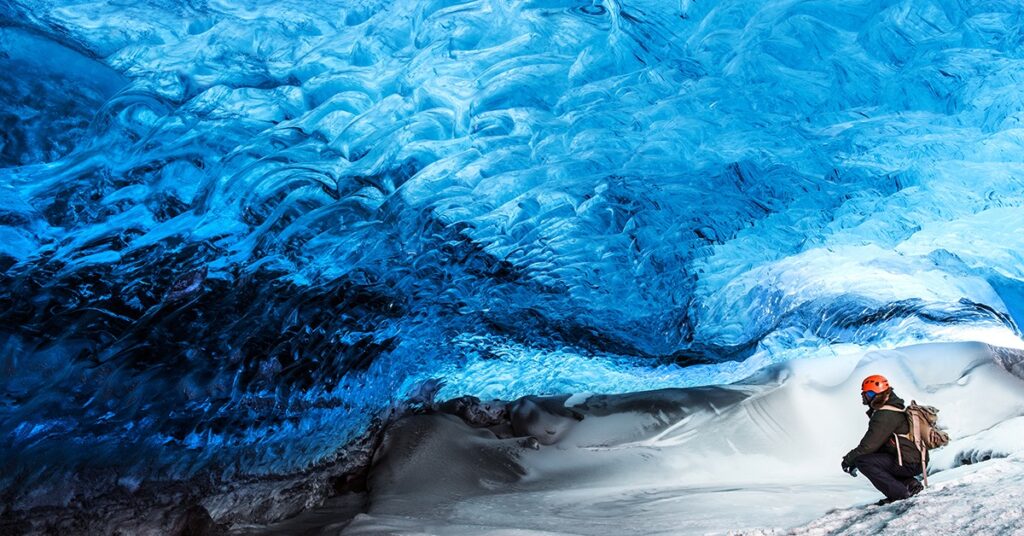
#1 | ICELAND: The Most Peaceful Country in The World
Icelanders can sleep well at night: they live in the most peaceful nation in the world. No news is good news when it comes to tranquil Iceland: it is the 17th year in a row that it retains the number one spot—since the index began in 2008. With no standing army, navy or air force and the smallest population of any NATO member state (about 390,000 people), Iceland also enjoys record-low crime rates (to the extent that policemen generally don’t carry firearms), an enviable education and welfare system, and ranks among the best nations in terms of jobs and earnings and subjective sense of wellbeing.
But did we say that Icelanders’ idyllic peace faces no threats? In 2022, the Reykjavík police arrested four people in connection with preparations for a suspected terrorist attack. That was the first year that the country recorded any of such activity. Luckily, no further incidents have been reported since then.
View Iceland GDP and Economic Data
WORLD’S MOST PEACEFUL NATIONS: FULL RANKING
Source: Global Peace Index 2024.
Source link : https://gfmag.com/data/most-peaceful-countries/
Author :
Publish date : 2024-06-12 07:00:00
Copyright for syndicated content belongs to the linked Source.

